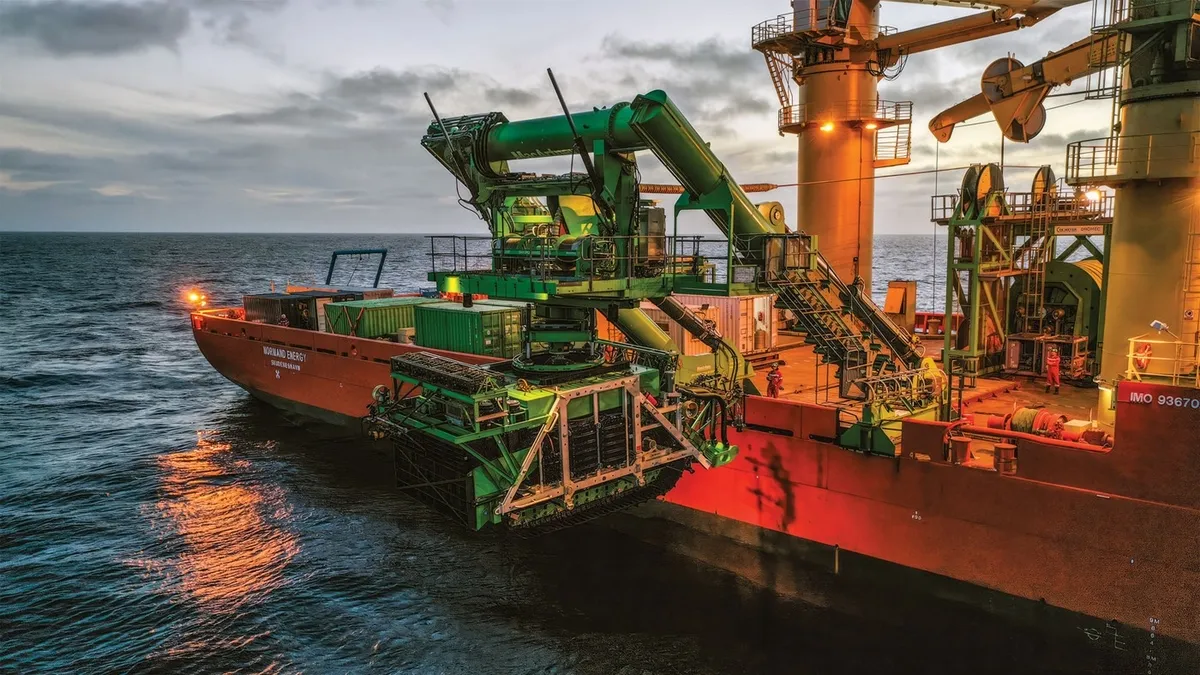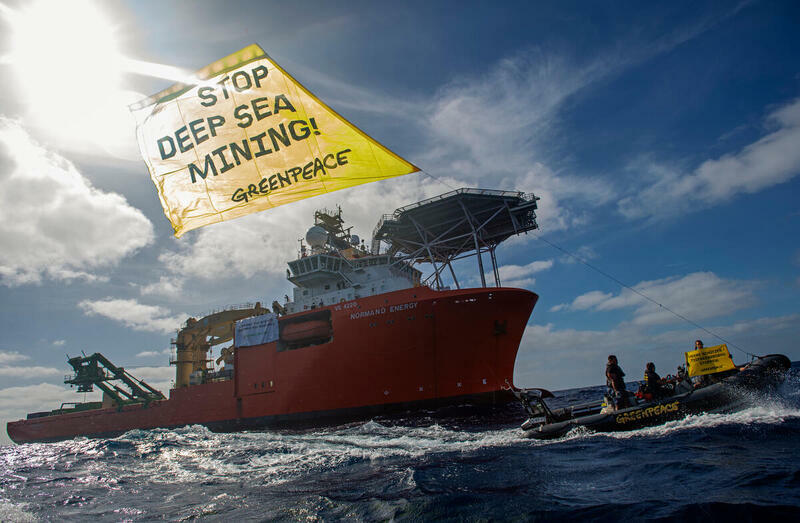Britain’s U-Turn on Deep-Sea Mining
The UK government has made a major policy change by endorsing a short-term ban on commercial deep-sea mining. Scientists, lawmakers, and environmentalists who were worried about the damaging consequences of deep-sea mining on marine ecosystems and its possible impact on the global carbon balance have been increasingly critical of this action. We’ll examine this significant choice and its effects in this post.
The Previous Stance
The UK had been assisting the developing deep-sea mining sector until recently. Several stakeholders expressed alarm over this support, claiming that industrial-scale seabed extraction might have detrimental effects on marine life and the ocean’s capacity to absorb carbon dioxide.
A Change of Heart
The recent announcement by the UK government marks a substantial policy shift. The government now supports a temporary suspension on sponsoring or endorsing any exploitation licenses for mining metals from the sea floor. This suspension will remain in place until sufficient scientific evidence is available to understand the full impact of deep-sea mining on ecosystems.
Joining a Global Movement
Not just the UK has had this change of heart. It now adds its name to the increasing list of at least 20 nations that have demanded a halt to the granting of exploration licenses, which already includes Canada, Brazil, France, Germany, and Sweden. The goal of this coordinated strategy is to stop more seabed extraction until the consequences on the environment are better understood.

Industry Pledges
Even companies outside the mining sector are taking responsibility. Car manufacturers like BMW and Volvo, along with car battery maker Samsung, have pledged not to use deep-sea minerals in their products. This commitment reflects the wider concern about the impact of deep-sea mining.
Environmental Science Network
To fill gaps in scientific evidence, the UK government will establish an environmental science network dedicated to deep-sea mining. This network will gather essential data to comprehend the environmental impact of mining and help make informed decisions about seabed exploitation.
Labour Party’s Call
In July, the UK Labour Party urged the government to back calls for a precautionary pause on deep-sea mining, insisting that it should only proceed when clear scientific evidence supports its safety and the implementation of new regulations to protect the marine environment.
International Seabed Authority
The International Seabed Authority (ISA), a quasi-UN body, is currently at the center of fresh negotiations surrounding deep-sea mining. Member states have agreed to discuss a moratorium, which could reshape the industry’s future.
Existing UK Interests
It’s worth noting that the UK government holds two exploration licenses for extracting metals from the Pacific Ocean’s floor. The UK is among 14 countries sponsoring exploration or research contracts in this domain.
Environmental Concerns
Since less than 1% of the world’s deep waters have been studied, scientists and environmental organizations contend that deep-sea mining carries serious risks. They draw attention to possible hazards such as light pollution, loud noises, suffocating dust storms, fuel spills, and the usage of chemicals during mining.
The Role of the UK
The UK, with its active role in marine environmental protection and conservation, is taking a significant step in supporting a moratorium on seabed mining. However, it’s essential to transform this political declaration into a legal reality at the International Seabed Authority.
Greenpeace’s Perspective
Greenpeace’s UK ocean campaigner, Fiona Nicholls, views the UK government’s reversal of course as encouraging. She thinks that the destructive deep-sea mining business, which poses a threat to some of the planet’s remaining intact habitats, is starting to lose ground.
Conclusion
To sum up, the UK’s move to support a ban on commercial deep-sea mining is an important step forward in the worldwide campaign to save the oceans. The UK is leading the way in environmental responsibility by highlighting the importance of scientific evidence and ethical environmental policies.
FAQs
Is deep-sea mining what it is?
The practice of taking metals and minerals from the seafloor, frequently at very deep depths, is known as deep-sea mining.
2. What makes deep-sea mining debatable?
Because it may have detrimental effects on marine ecosystems, such as the release of pollutants and habitat damage, deep-sea mining is contentious.
3. How might deep-sea mining benefit from the precautionary principle?
When there is uncertainty about potential dangers and environmental harm, the precautionary principle calls for taking preventive action. Applying it to deep-sea mining means postponing it until there is unambiguous scientific proof that it can be carried out safely.

